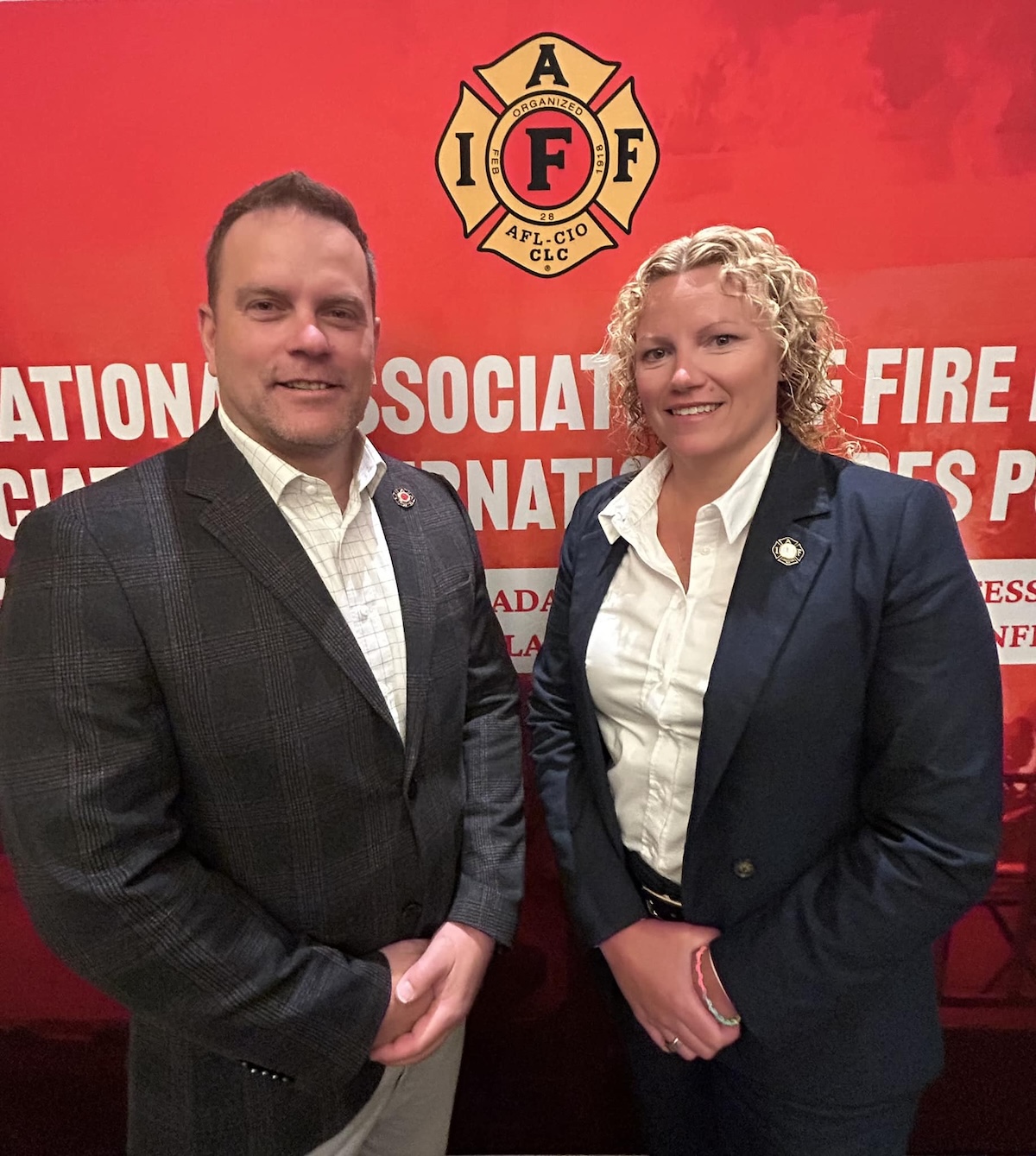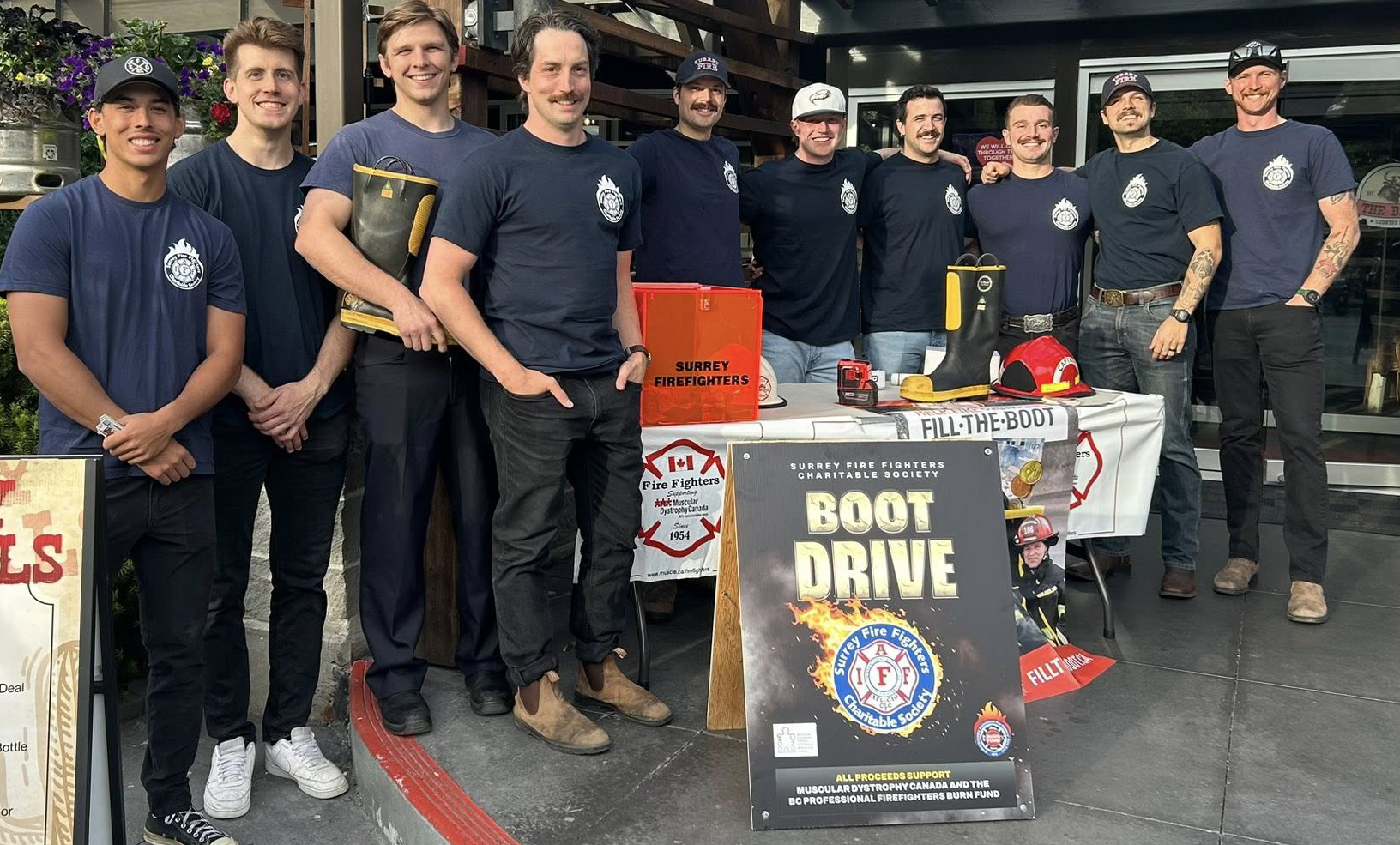
Just weeks after the Government of Canada agreed to provide funding for the IAFF Responding to the Interface (RTI) program, 50 IAFF members received wildland interface response training during two courses held Aug. 1-4 in Kamloops, British Columbia.
The inaugural classes, which included a train-the-trainer course for 25 fire fighters and a standard training course for an additional 25, are part of a one-year, $400,000 pilot project implemented through Natural Resources Canada, marking an important new partnership and a victory for the IAFF that will improve fire fighter and public safety amid the growing threat wildfires pose on urban interface areas across Canada each year.
The RTI pilot project was the result of an intensive lobbying effort by the IAFF this spring, set against the backdrop of an early and intense start to the wildfire season in British Columbia, Alberta, and Nova Scotia.
The RTI program, which uses an IAFF curriculum and IAFF Master Instructors, teaches fire fighters to defend structures from wildfires that encroach on urban settings. The program is modeled after the IAFF’s Canadian Haz-Mat & CBRNE Training Initiative, which has successfully trained over 7,000 first responders since 2009 thanks to Government of Canada funding.
Kamloops Local 913 Secretary Mark Brise, an RTI Master Instructor, was joined by IAFF Master Instructors from California and Texas for the Kamloops training event.
In accordance with the IAFF’s agreement with Natural Resource Canada, an additional 15 classes – for a total of 325 students – will take place between now and March 2024.
General President Edward Kelly hailed the training events as a new chapter in public and fire fighter safety in Canada, noting the severity of the wildfire season and the increasing threat wildfires present.
“We’re grateful to the Canadian Government for endorsing our RTI program and for allowing us to get this training underway in Canada,” Kelly said. “With the threat of wildfires growing each year, it’s extremely important to ensure fire fighters are trained to safely and effectively protect their communities from the unique dangers wildfires pose in the interface.”
At an Aug. 11 press conference in North Vancouver, B.C., Environment and Natural Resources Minister Jonathan Wilkinson emphasized the unprecedented wildfire season Canada has experienced to date and stated that safety of the public is the federal government’s first priority.
“That’s why we’re partnering with the IAFF to deliver more fire fighters and high-quality training opportunities across Canada,” he said.
IAFF 6th District Vice President Mike Carter, who was instrumental in organizing the Kamloops training and participated as a student, explained that the IAFF RTI curriculum addresses public and fire fighter safety in terms of the specific hazards wildfires bring to interface areas.
“The need to defend our communities from encroaching interface fires is imperative,” Carter said. We’re grateful to the Government of Canada and the Minister of Energy and Natural Resources for funding the IAFF’s Responding to the Interface training program so that fire fighters can safely and effectively protect Canadians and their homes from this danger.”
Canada is currently experiencing its worst wildfire season in history, with over 11.5 million hectares (28.4 million acres) burned this year.


